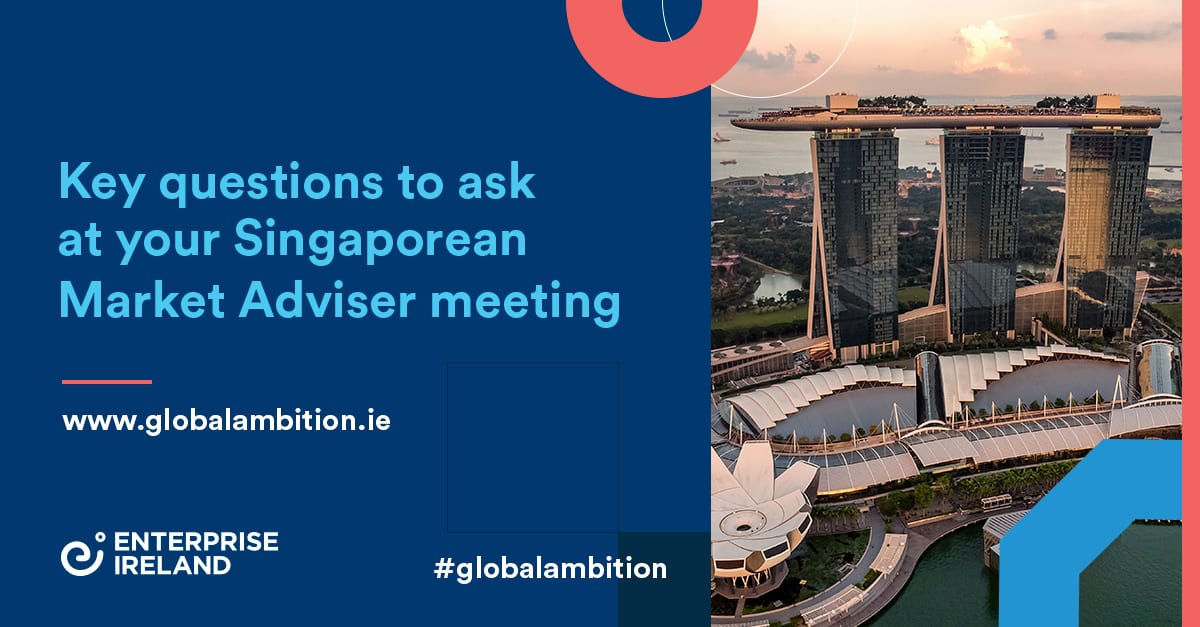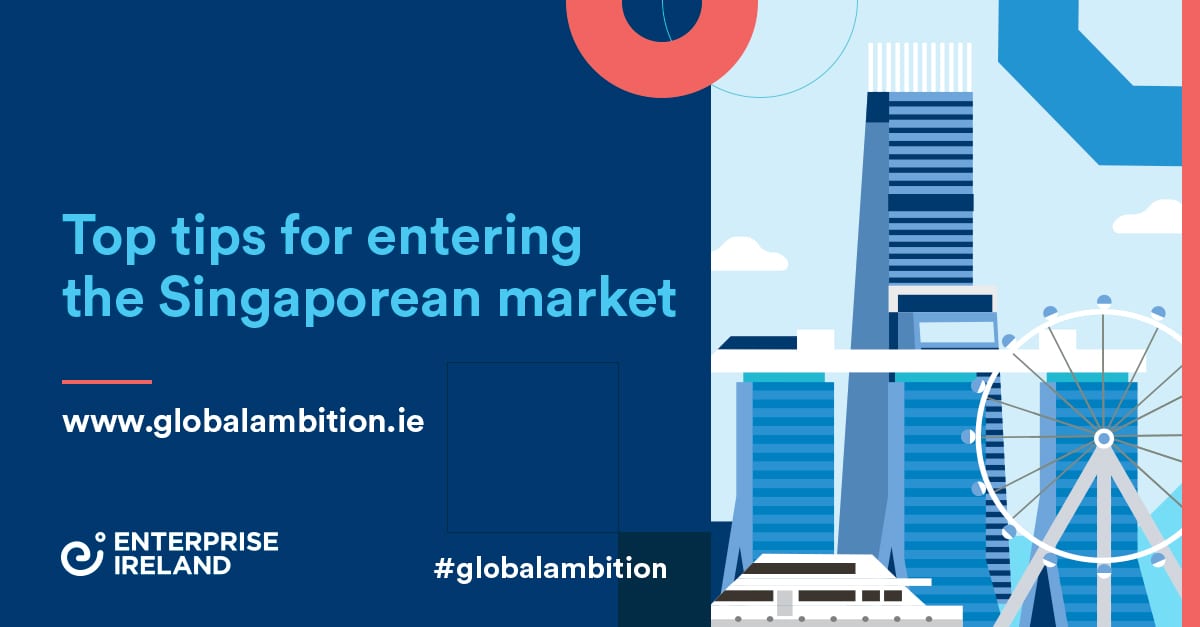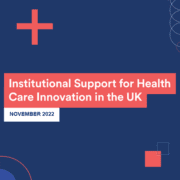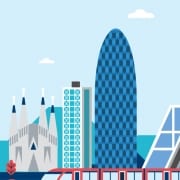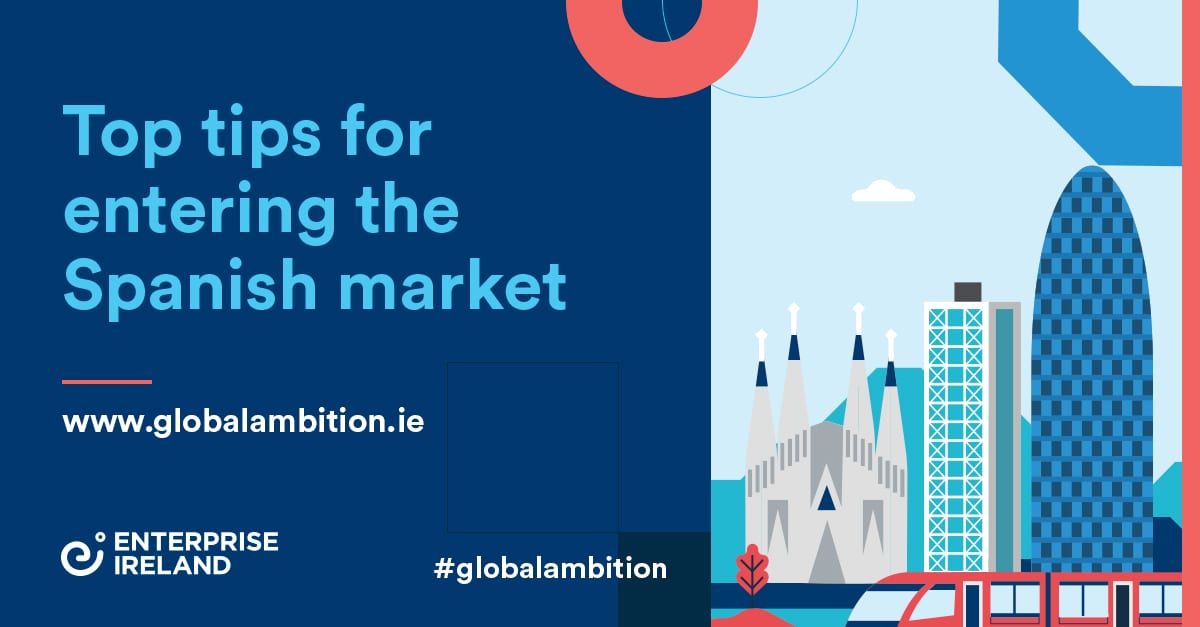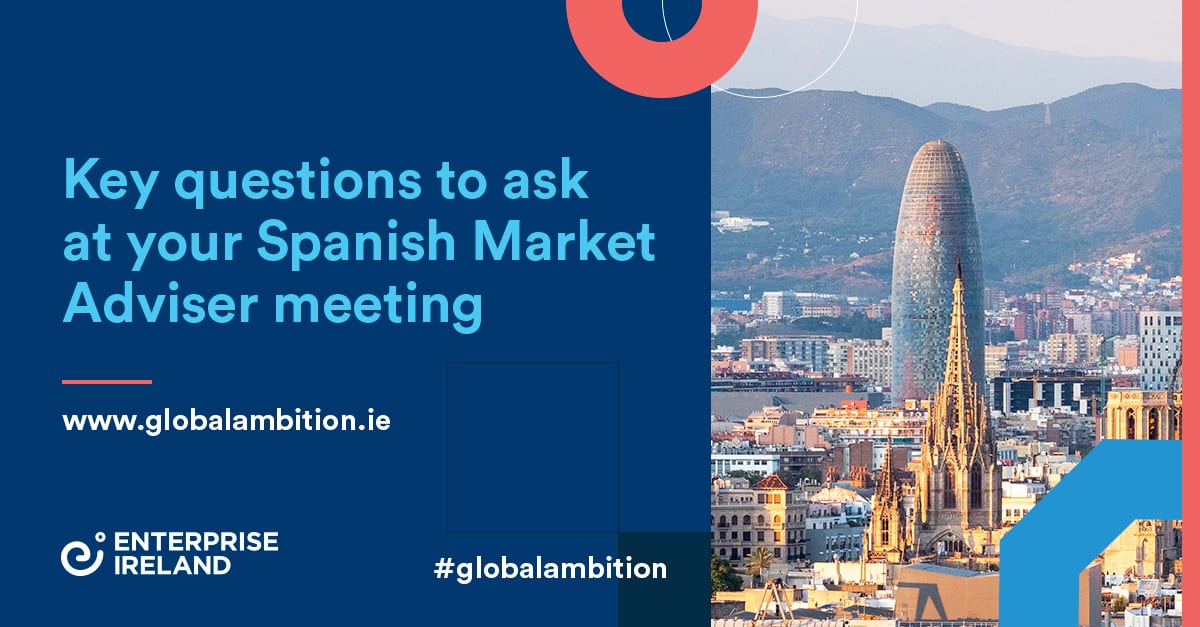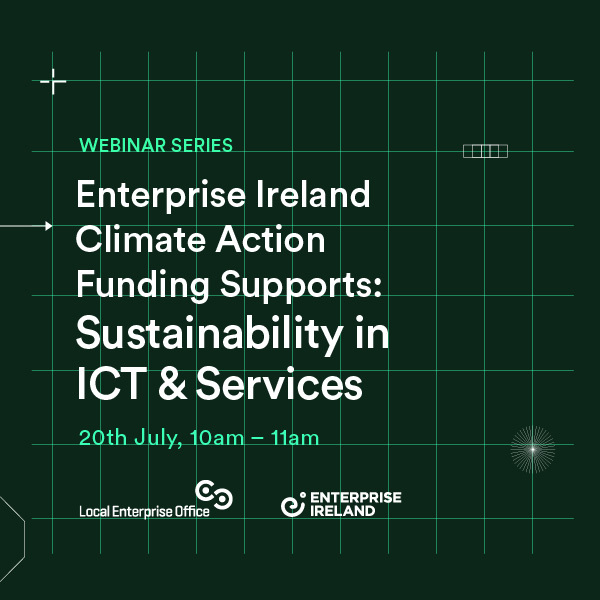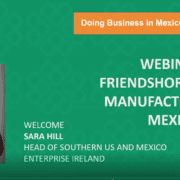These days, Ireland is thriving when it comes to exports. In 2021, Irish exports topped €29 billion and included everything from high-tech construction solutions to industry-leading dairy products. It wasn’t always like that, however.
When Enterprise Ireland’s predecessor, Corás Tráchtála, first opened an office in Dusseldorf in 1962, live cattle and sewing machines were Ireland’s main exports to Germany with total exports amounting to £5m in Irish punts.
As the office marks its 60th anniversary in 2022, things have changed somewhat. Indigenous Irish companies exported almost €2 billion to the German-speaking region of which €1.4 billion went to Germany in 2021, despite the pandemic.
“This German result represented an increase of 17% on the previous year and was driven primarily by sales in high-tech construction, ICT, life sciences and industrial products and services,” says Manus Rooney, Germany/Austria/Switzerland Country Manager, Enterprise Ireland.
“We have really seen an incredible performance by Irish companies in Germany in the past 12 to 18 months, particularly given the pandemic and supply chain issues.”
German customers prize innovation
In large part, that is due to the highly innovative products and services on offer from Irish firms. German customers appreciate and put value on innovation, so are willing to pay for it. This approach, combined with the size of the German market, makes it a stable, resilient and reliable place to do business.
Among the Irish firms thriving in Germany are medical device firm Aerogen, in-car connectivity leaders Cubic Telecom and the food ordering software company Flipdish, along with Ireland’s Eye knitwear and EI Electronics, a market leader in smoke alarms here.
“Not only are Irish firms doing great business in Germany, but they employ approximately 30,000 people there, showing that Irish firms are not just exporting to this market, but also creating true partnership and value here,” says Rooney.
European funding offers a further boost
Of course, the skyrocketing success of Irish exporters in Germany over recent decades is also due to the dismantling of trade barriers. Back in 1962, ambitious Irish firms had to contend with import quotas and currency risks, whereas free trade and a shared currency has eased cross-border sales.
The EU is also enabling even further opportunity across Europe with its €750 billion NextGenerationEU plan, which seeks to build a more resilient Europe.
Making use of its share of this funding, Germany has committed €25.6 billion in grants for recovery and resilience projects, with 42 percent going to climate initiatives and 52 percent funding digital transformation. It is funding the digitalisation of hospitals to the tune of €3 billion, for example.
“Irish companies can directly and indirectly access this funding, by tendering directly for projects, by partnering with German companies or by supplying German companies that are carrying out funded projects,” says Rooney. “This is really an exceptional opportunity.”
Construction firms look to Germany
There is also significant opportunity for Irish firms in Germany when it comes to high-tech construction, such as that of pharmaceutical facilities and data centres, especially when it comes to specialisms such as energy management, design and planning services, and construction.
Ireland has huge expertise and reputation in this area and our track record offers the chance to be involved in large German capital projects. Intel, for example, is investing €17 billion in the construction of a new plant in Magdeburg, which is set to get underway in 2023.
Understand the Germany market
Companies that take a strategic approach and spend time to research a market are more likely to thrive as exporters, says Rooney.
Germany isn’t a market for opportunistic sales, however, he adds. German customers like to deal with suppliers who are committed to the market, which means staff with German-language skills and cultural appreciation, regular visits and a physical presence if possible.
While sales cycles can be long, the process is worthwhile given the opportunity of long-term value offered to those selling into Germany.
“Remember that Germany is an export champion,” says Rooney, “so exports to Germany mean global exports.”
Consider Austria and Switzerland
Enterprise Ireland’s office in Germany covers the German-speaking region, which includes Austria and Switzerland, markets which have their own particular characteristics.
Many of those have found Switzerland an excellent export market, both in its own right and to act as a springboard into Germany. Swiss clients are more likely to look externally for suppliers initially and Irish companies have built a strong reputation there for quality, reliability and value, especially in ICT, engineering and life sciences.
“That credibility then stands to Irish firms when they seek to expand in the other German-speaking markets,” explains Rooney.
“Austria, meanwhile, provides specific opportunities in certain industrial sectors and construction,” he adds. “Overall, the region offers a number of options and routes to start or scale your export business.”
